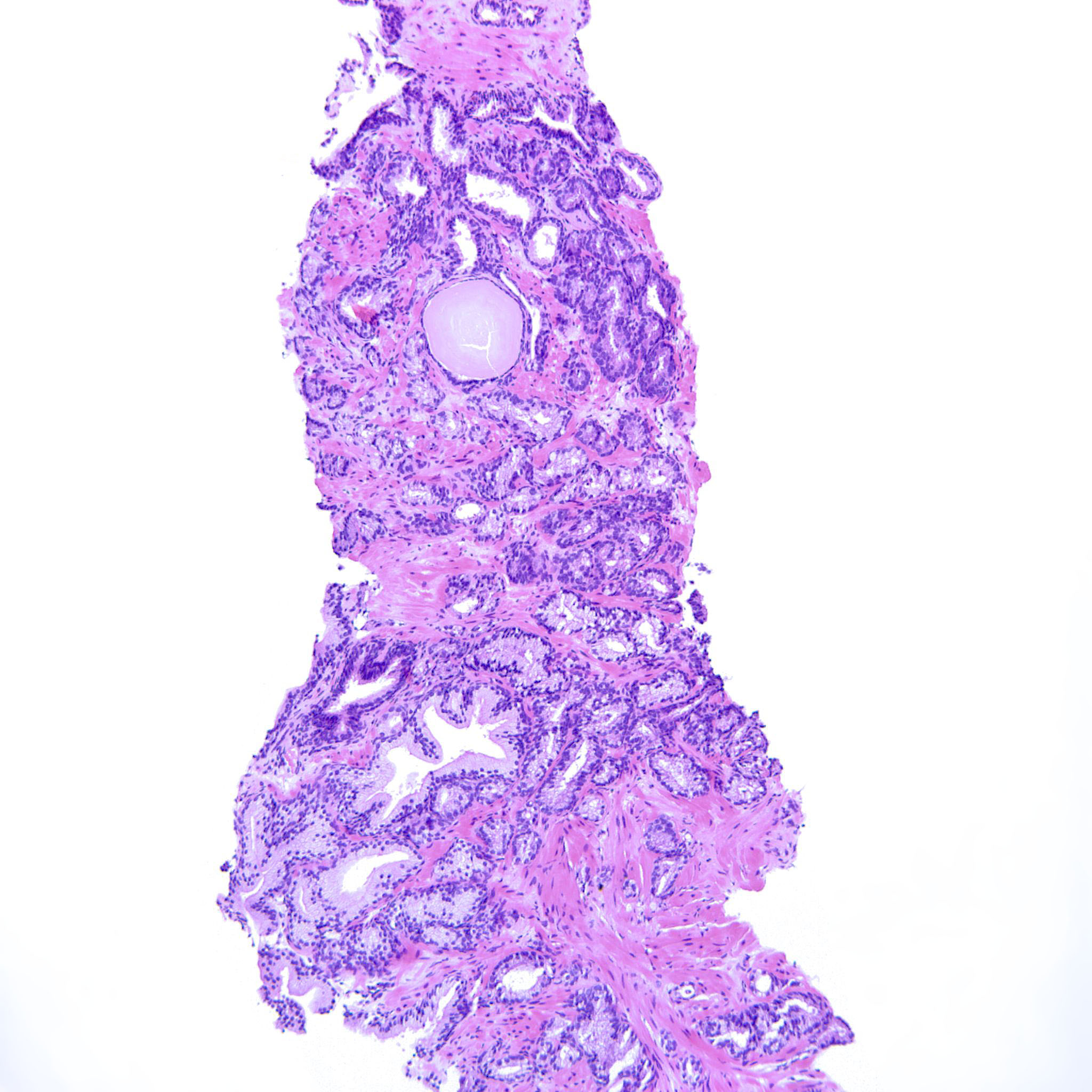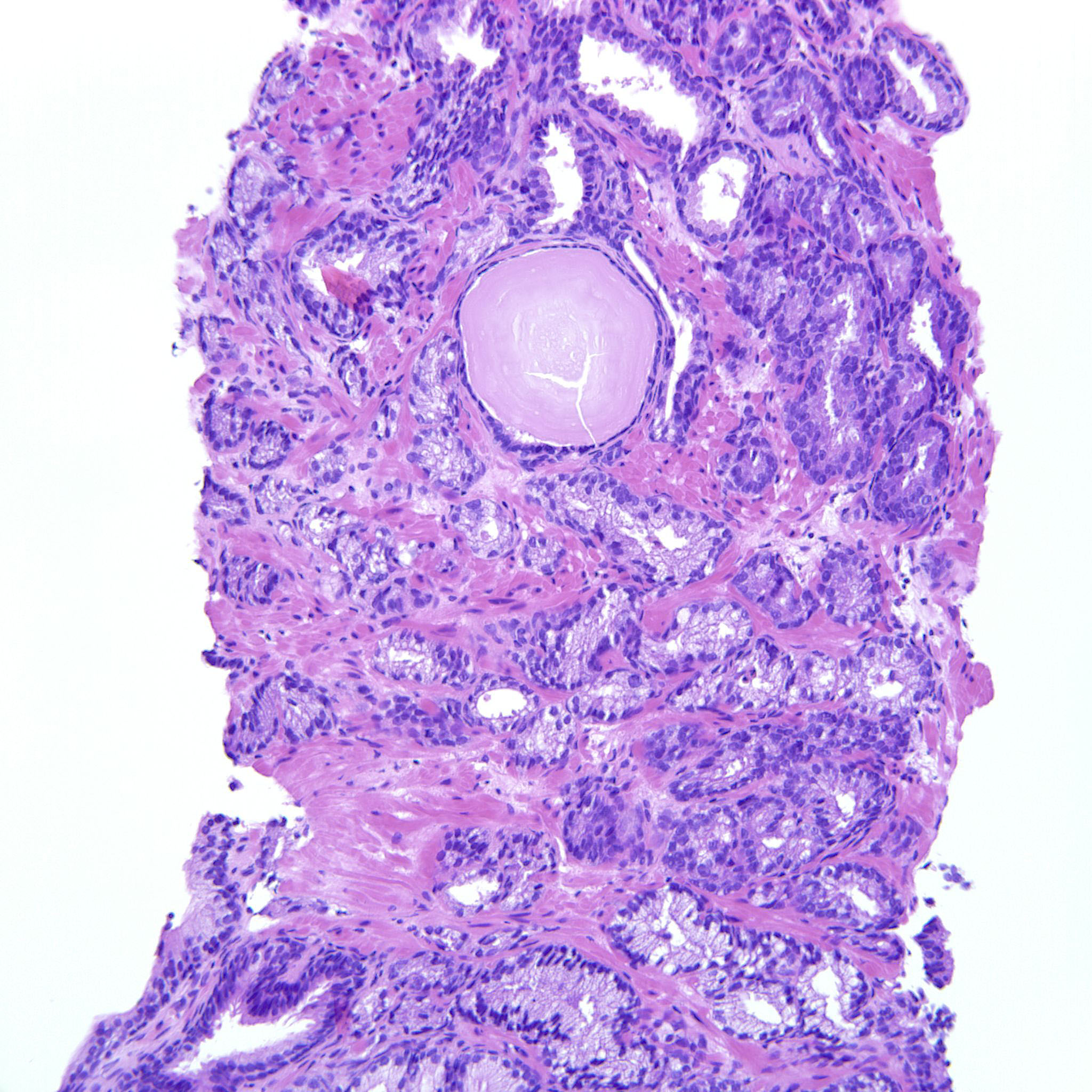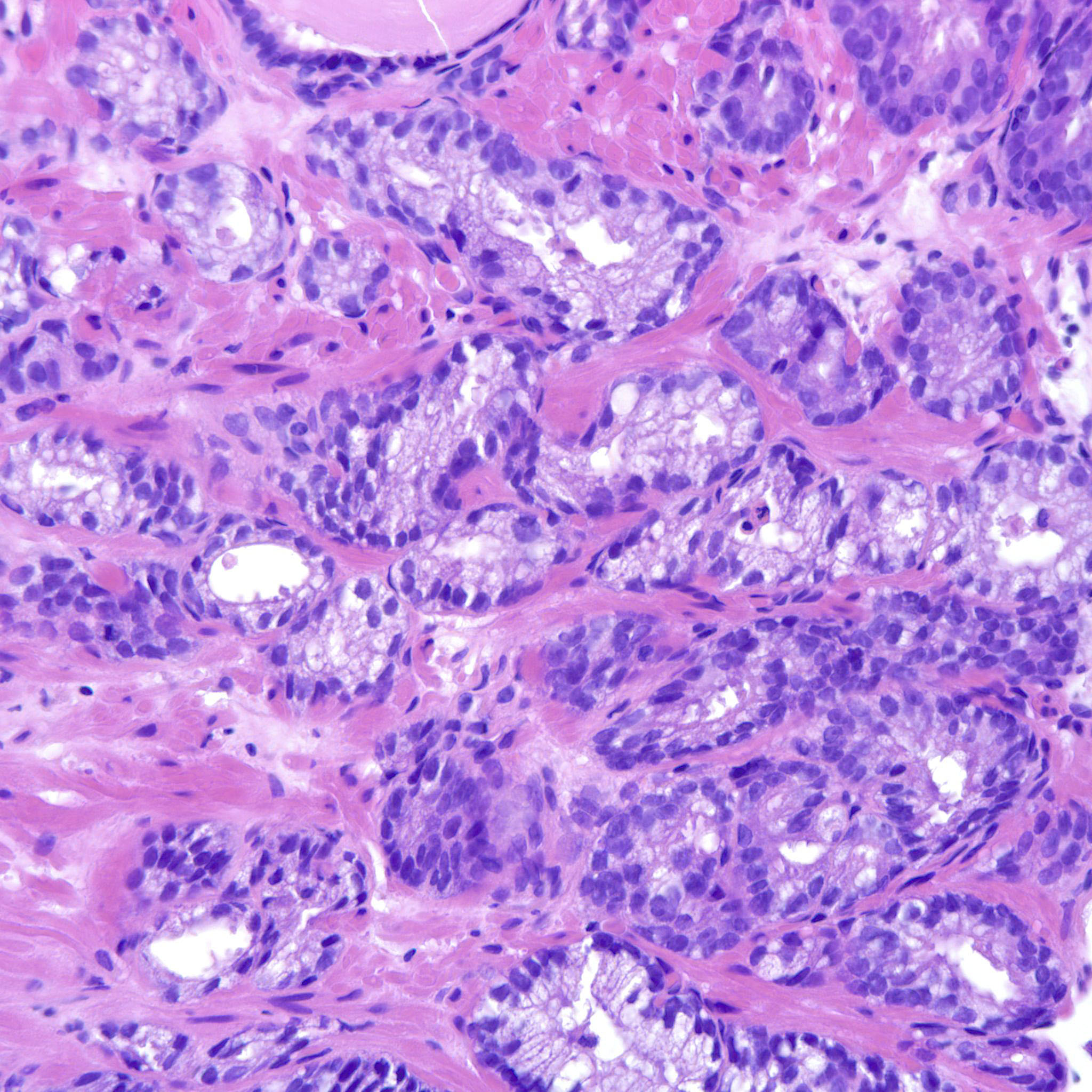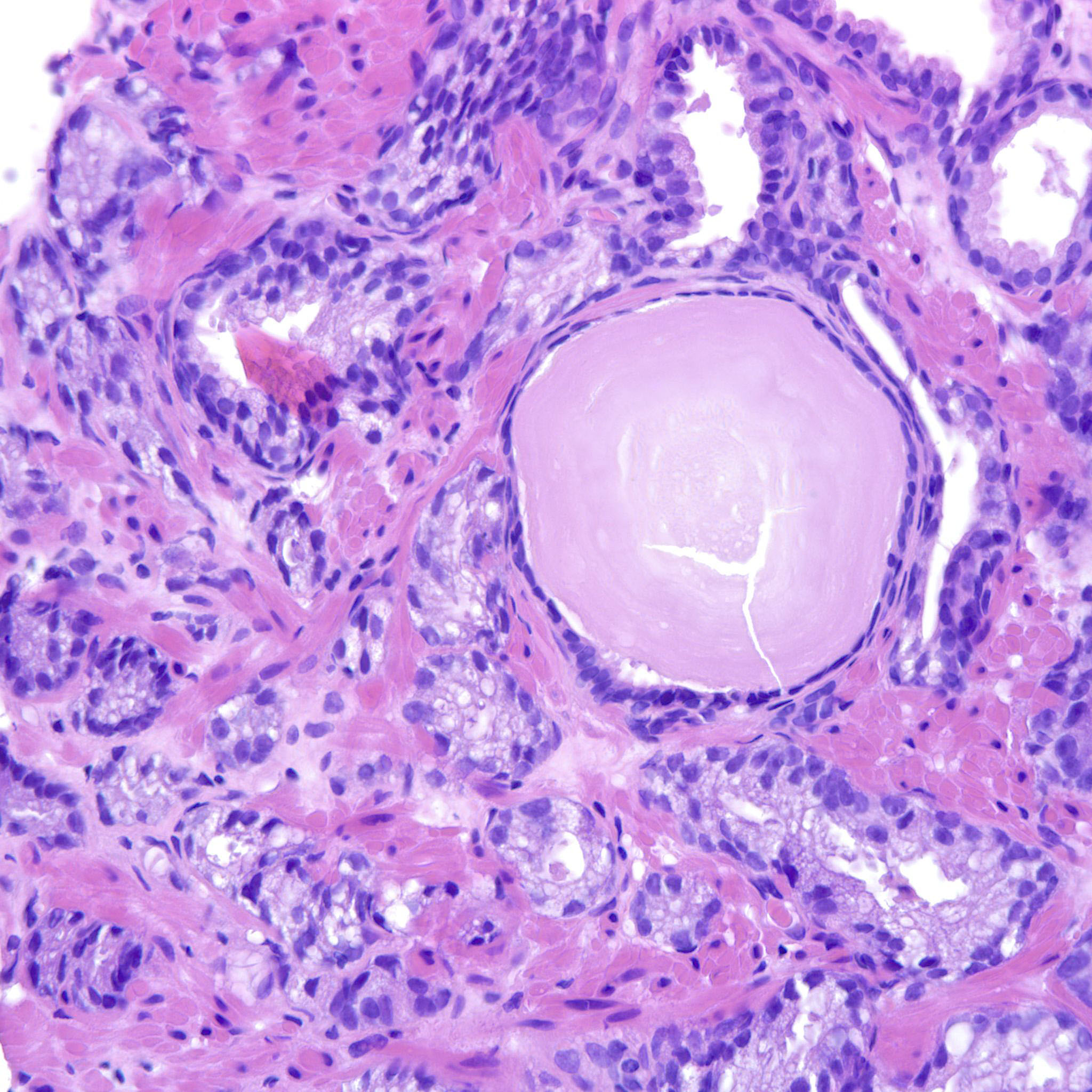Case ID: 826
Publication date: 28 Sep, 2025
Consensus grade: GS 3+3=6 (ISUP 1)
Show diagnosis by expert panel members| User | Diagnosis | Difficulty | Comment |
|---|---|---|---|
| Pathologist 1 | GS 3+3=6 (ISUP 1) | Typical | |
| Pathologist 2 | GS 3+3=6 (ISUP 1) | Typical | |
| Pathologist 3 | GS 3+4=7 (ISUP 2) | Typical | |
| Pathologist 4 | GS 3+3=6 (ISUP 1) | Typical | |
| Pathologist 5 | GS 3+3=6 (ISUP 1) | Typical | |
| Pathologist 6 | GS 3+3=6 (ISUP 1) | Borderline higher | |
| Pathologist 7 | GS 3+3=6 (ISUP 1) | Typical |
dicreet glands |
| Pathologist 8 | GS 3+3=6 (ISUP 1) | Typical | |
| Pathologist 9 | GS 3+3=6 (ISUP 1) | Typical |
one could discuss eventually 4 because of gland fusion, but this is a minor finding |
| Pathologist 10 | GS 3+3=6 (ISUP 1) | Typical | |
| Pathologist 11 | GS 3+3=6 (ISUP 1) | Typical | |
| Pathologist 12 | GS 3+3=6 (ISUP 1) | Typical | |
| Pathologist 13 | GS 4+3=7 (ISUP 3) | Borderline higher |
Approx. 60% pattern 4 |
| Pathologist 14 | GS 3+3=6 (ISUP 1) | Typical | |
| Pathologist 15 | GS 3+3=6 (ISUP 1) | Typical | |
| Pathologist 16 | GS 3+3=6 (ISUP 1) | Borderline higher | |
| Pathologist 17 | GS 3+3=6 (ISUP 1) | Borderline higher | |
| Pathologist 18 | GS 3+3=6 (ISUP 1) | Borderline higher | |
| Pathologist 19 | GS 3+3=6 (ISUP 1) | Typical | |
| Pathologist 20 | GS 3+3=6 (ISUP 1) | Borderline higher | |
| Pathologist 21 | GS 3+3=6 (ISUP 1) | Borderline higher | |
| Pathologist 22 | GS 3+3=6 (ISUP 1) | Typical | |
| Pathologist 23 | GS 3+3=6 (ISUP 1) | Typical |
Case description (by case creator):
Small, almost solid appearing nests but probably well-formed glands that are tangentially cut.



